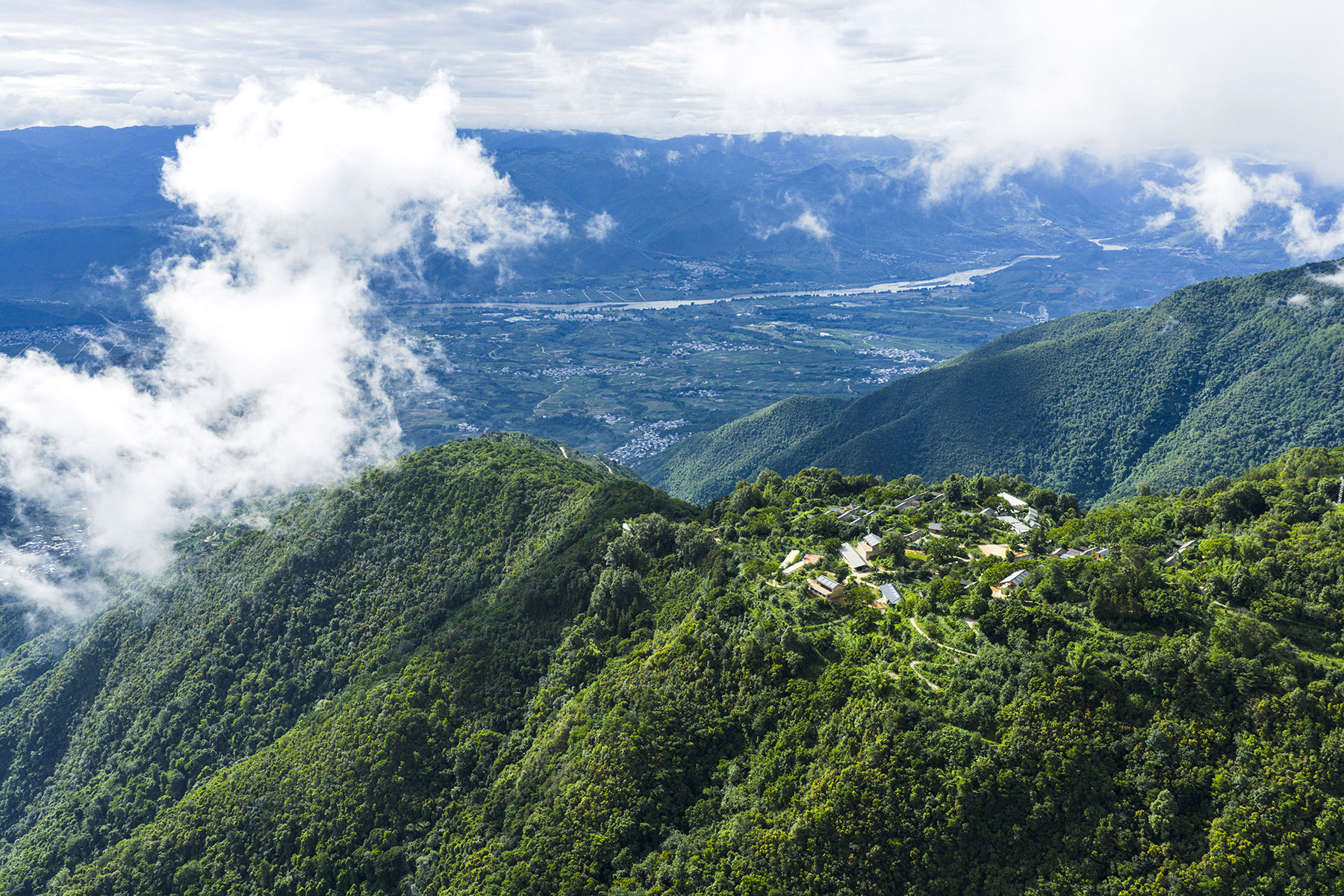
The Mountain That Coffee Brought Back to Life
A caffeine enthusiast returns to his rural roots to use his passion for coffee to bring prosperity and help restore an ecosystem.
In 2017, Wang Dayong flew a drone over Shitizhai, a remote village on the eastern slopes of the Gaoligong Mountains in Baoshan, Yunnan. What he saw was devastating — vast swathes of barren land, scarred by years of overuse.
“There were barren stretches of land that had been overworked and abused,” recalls Wang, now in his 50s.
But over the years, that same scarred landscape has undergone a remarkable transformation. Today, lush rows of coffee trees line the mountainside, interspersed with native species that provide shade and biodiversity — the perfect ecosystem for cultivating high-quality Arabica beans.
This regeneration effort was inspired by Wang’s discovery of the region’s forgotten coffee history. A former TV cameraman, he had left his job in 2013 to open a documentary studio in Shenzhen, producing films on urban development, fading traditions, and social change.
During a business trip to Yunnan, Wang engaged with locals and uncovered a rich coffee heritage that dated back to the 1920s. “I love coffee and was intrigued to delve deeper,” he says.
He learned that coffee had been introduced to Yunnan in the early 20th century. By the 1990s, it had become a major crop, with beans from the Gaoligong region winning international awards — including the Eureka Gold Medal at an expo in Brussels in 1993. Today, Yunnan accounts for 99% of China’s coffee production.
But commercial pressures had taken a toll. In pursuit of higher yields, farmers crowded trees into tight plots — increasing the density from 60 trees per tenth of a hectare to over 330. Quality suffered. Entire harvests were picked at once, regardless of ripeness. When the market crashed, many farmers cut down their prized Arabica trees in favor of fruits and vegetables.
Wang, born in a rural village in Henan province, felt a natural connection to the land. With China’s coffee consumption surging since 2018, he saw a chance to make a difference.
His documentary on Yunnan coffee attracted attention from local authorities, who supported his proposal to revive Shitizhai through sustainable coffee farming. Wang brought his family and team to the village — initially living in tents — and set three main goals: restore the land, improve coffee quality, and revitalize rural life.
The first step was ecological. Native trees were planted to provide shade and balance the ecosystem. No pesticides or chemical fertilizers were used. They replaced old hybrid varieties like Catimor with premium Arabica beans better suited for the altitude and cool climate.
“Arabica beans are special,” Wang says. “They need the right altitude, the right shade, and the right ecosystem.”
Farmers were trained to pick only ripe cherries by hand, preserving the quality. As a result, yield value per mu (0.067 hectares) rose from 3,000 yuan (approx. $417) to nearly 5,000 yuan.
Wang also emphasized education. At annual harvest festivals, farmers tasted their own coffee, learning to appreciate its quality. “Only by understanding the difference between good and bad coffee can they stop planting low-grade, disease-resistant varieties,” he says.
By 2024, Wang’s plantation had its first harvest of high-quality Arabica beans. They were roasted and sold directly to coffee enthusiasts, becoming a key source of income for villagers. Shitizhai began attracting attention from both the coffee industry and eco-tourism circles.
Professor Wu Hua from Shanghai University, who visited the village several times, called the project a model for rural revitalization. “You have a once-abandoned village brought back to life, farmers returning from the cities, and a coffee industry regaining its footing,” she said. “It’s a harmony between people and nature.”
Wang now spends his days in Shitizhai with his team, most of whom followed him from Shenzhen. “It takes 40 minutes to go down the mountain,” he says. “Unless we’re sending coffee or welcoming guests, we don’t leave.”
At 1,800 meters above sea level, visitors to the estate can enjoy the clean air, panoramic views, and freshly brewed coffee from locally grown beans.
Wang’s team manages the full coffee process — from cultivation and breeding to roasting and extraction. He’s also opened two cafés in Shenzhen (in 2021 and 2024) that serve only black coffee, with no milk-based drinks or takeout options.
“A coffee shop should be a space for people to connect and exchange ideas,” he explains. “It’s not just about selling coffee.”
To Wang, moving back to the countryside wasn’t retreat — it was a purposeful choice.
“I don’t see the countryside as the opposite of the city. It’s a place where your talents and dreams can fully unfold.”



